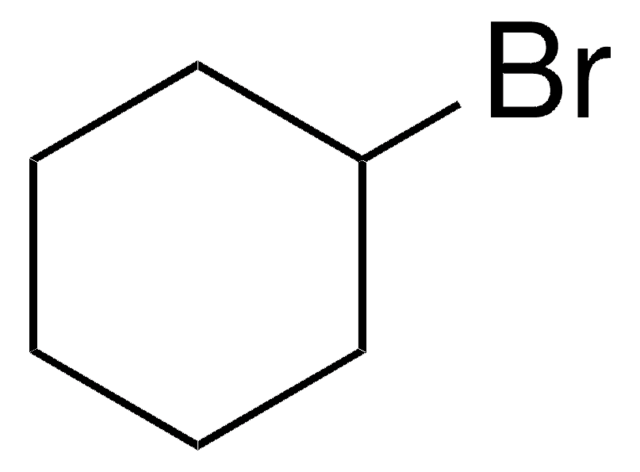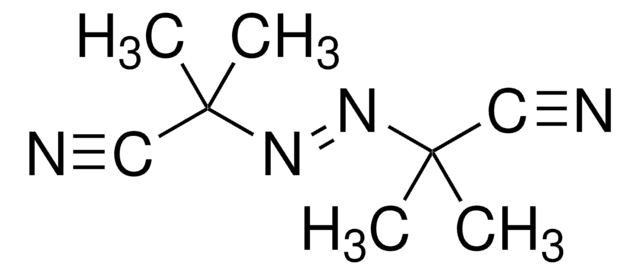All Photos(2)
About This Item
Linear Formula:
CH3(CH2)6Cl
CAS Number:
Molecular Weight:
134.65
Beilstein:
1697159
EC Number:
MDL number:
UNSPSC Code:
12352100
PubChem Substance ID:
NACRES:
NA.22
Recommended Products
Assay
99%
refractive index
n20/D 1.425 (lit.)
bp
159-161 °C (lit.)
mp
−69 °C (lit.)
density
0.881 g/mL at 25 °C (lit.)
SMILES string
CCCCCCCCl
InChI
1S/C7H15Cl/c1-2-3-4-5-6-7-8/h2-7H2,1H3
InChI key
DZMDPHNGKBEVRE-UHFFFAOYSA-N
Looking for similar products? Visit Product Comparison Guide
Related Categories
Application
1-Chloroheptane was used in the coupling of a GC to the ICP-MHMS-FPC for the determination of halogenated hydrocarbons and organometallic species.
Signal Word
Warning
Hazard Statements
Precautionary Statements
Hazard Classifications
Flam. Liq. 3
Storage Class Code
3 - Flammable liquids
WGK
WGK 3
Flash Point(F)
100.4 °F - closed cup
Flash Point(C)
38 °C - closed cup
Personal Protective Equipment
dust mask type N95 (US), Eyeshields, Gloves
Choose from one of the most recent versions:
Already Own This Product?
Find documentation for the products that you have recently purchased in the Document Library.
Customers Also Viewed
Barnes JH, et al.
Journal of Analytical Atomic Spectrometry, 19(6), 751-756 (2004)
Thomas Bielewicz et al.
Nanotechnology, 27(35), 355602-355602 (2016-07-28)
Two-dimensional colloidal nanosheets represent very attractive optoelectronic materials. They combine good lateral conductivity with solution-processability and geometry-tunable electronic properties. In the case of PbS nanosheets, so far synthesis has been driven by the addition of chloroalkanes as coligands. Here, we
Maxwell Wei-Hao Li et al.
Journal of chromatography. A, 1620, 461002-461002 (2020-03-08)
Micro gas chromatography (µGC) is a technique developed for rapid, in situ analysis of volatile organic compounds (VOCs) for environmental protection, industrial monitoring, and toxicology. While reduced µGC size and power requirements allow for increased portability, the low moisture and
Jonas Winters et al.
Physical chemistry chemical physics : PCCP, 21(7), 4053-4062 (2019-02-05)
Polyaramids are a class of high-performance polymers, known for their high mechanical strength and chemical and thermal stability. Their ability to create a network of intermolecular hydrogen bonds causes them to be very poorly soluble in conventional solvents. Hazardous solvents
A A Toropov et al.
European journal of medicinal chemistry, 43(4), 714-740 (2007-07-17)
Simplified molecular input line entry system (SMILES) has been utilized in constructing quantitative structure-property relationships (QSPR) for octanol/water partition coefficient of vitamins and organic compounds of different classes by optimal descriptors. Statistical characteristics of the best model (vitamins) are the
Our team of scientists has experience in all areas of research including Life Science, Material Science, Chemical Synthesis, Chromatography, Analytical and many others.
Contact Technical Service

















